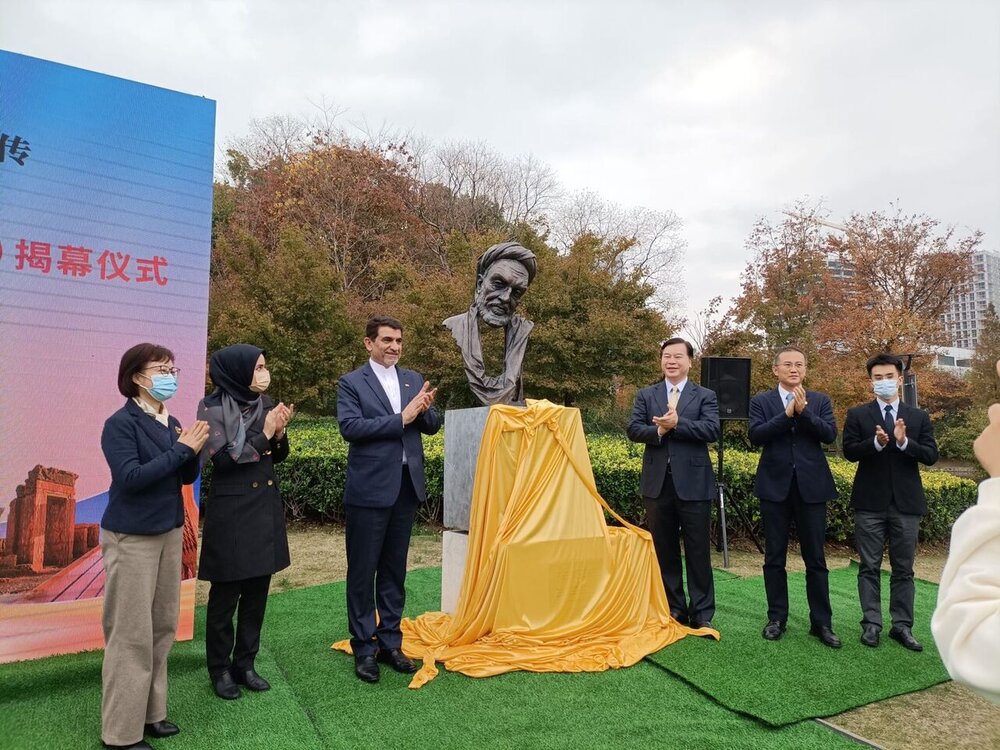China’s Intl. Friendship Park embellished with bust of Persian poet Sadi

TEHRAN – A bust of Persian poet Sadi has been unveiled in the International Friendship Park of Nanjing, the capital of China’s eastern Jiangsu province.
Known as an urban ecological park, the International Friendship Park features works by sculptors from Nanjing’s sister cities around the world.
The consul-general of Iran in Shanghai, Ramezan Parvaz, and a number of the municipal authorities of Nanjing attended an unveiling ceremony of the bust held last Wednesday.
“Today, the statue of Sadi presented by Shiraz Municipality was unveiled in the International Friendship Park in Nanjing, my hometown,” the Chinese ambassador to Tehran, Chang Hua, wrote on his Twitter.
“I am very happy to see the continuous strengthening of cultural exchanges between the two countries,” he added.
The bust has been made by Abol-Ali Qasre al-Dashti, an Iranian sculptor from Shiraz.
The decision to set up the bust was made based on an agreement signed to name Nanjing a sister city to the southern Iranian city of Shiraz, the hometown of Sadi. The agreement was inked by the mayors of Shiraz and Nanjing during the Iranian mayor’s visit to the Chinese city in 2018.
Musharref ad-Din ibn Muslih ad-Din, known as Sadi (c. 1213-1291) is one of the greatest figures in classical Persian literature. His best-known works are the Bustan (1257; The Orchard) and the Gulistan (1258; The Rose Garden).
The Bustan is entirely in verse and consists of stories aptly illustrating the standard virtues recommended to Muslims – justice, liberality, modesty, and contentment – as well as of reflections on the behavior of dervishes and their ecstatic practices.
The Gulistan is mainly in prose and contains stories and personal anecdotes. The text is interspersed with a variety of short poems, containing aphorisms, advice and humorous reflections.
Earlier on August 2, a statue of Chinese writer Cao Zhan (1715?-1763) was unveiled in the Jahan-nama Garden of Shiraz as based on the agreement.
Cao Zhan, also called Cao Xueqin, was born in Jiangning, now Nanjing. He is the author of “Hongloumeng” (“Dream of the Red Chamber”), generally considered China’s greatest novel.
A partly autobiographical work, it is written in the vernacular and describes in lingering detail the decline of the powerful Jia family and the ill-fated love between Baoyu and his cousin Lin Daiyu.
Photo: Consul-general of Iran in Shanghai, Ramezan Parvaz (3rd L), and a several Chinese officials unveil a bust of Iranian poet Sadi in the International Friendship Park of Nanjing, China, on November 23, 2022.
MMS/YAW
